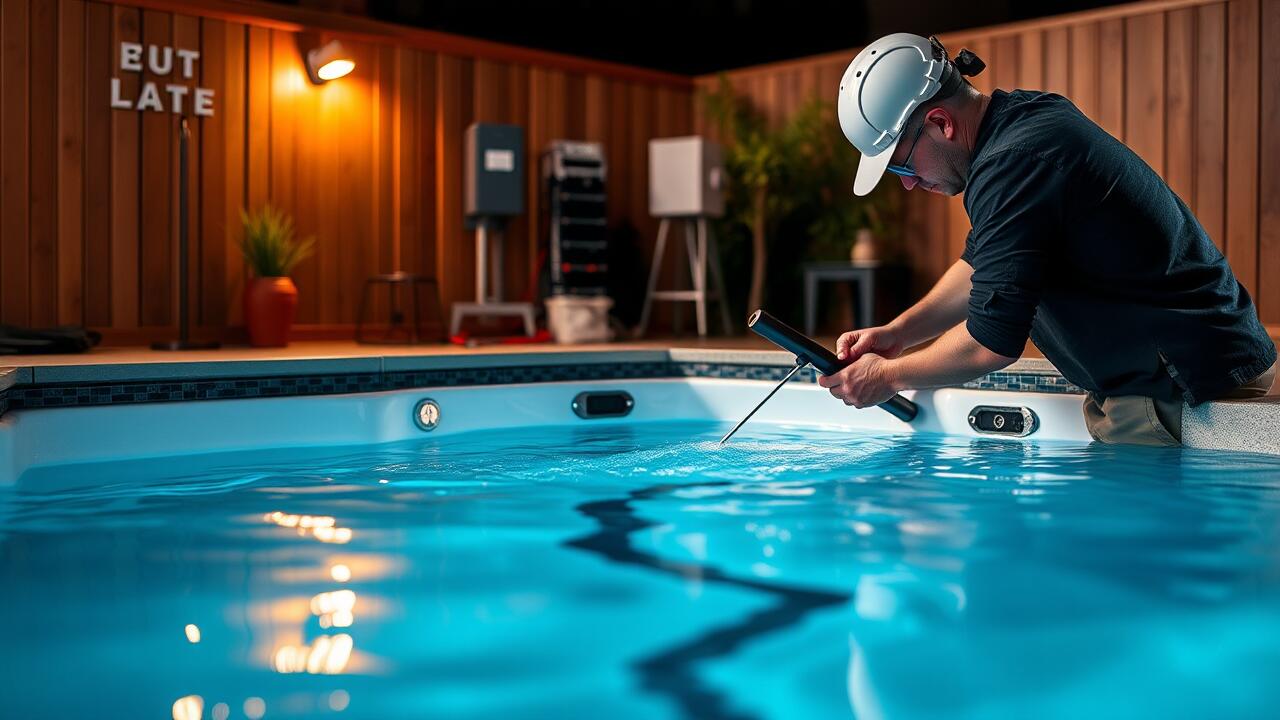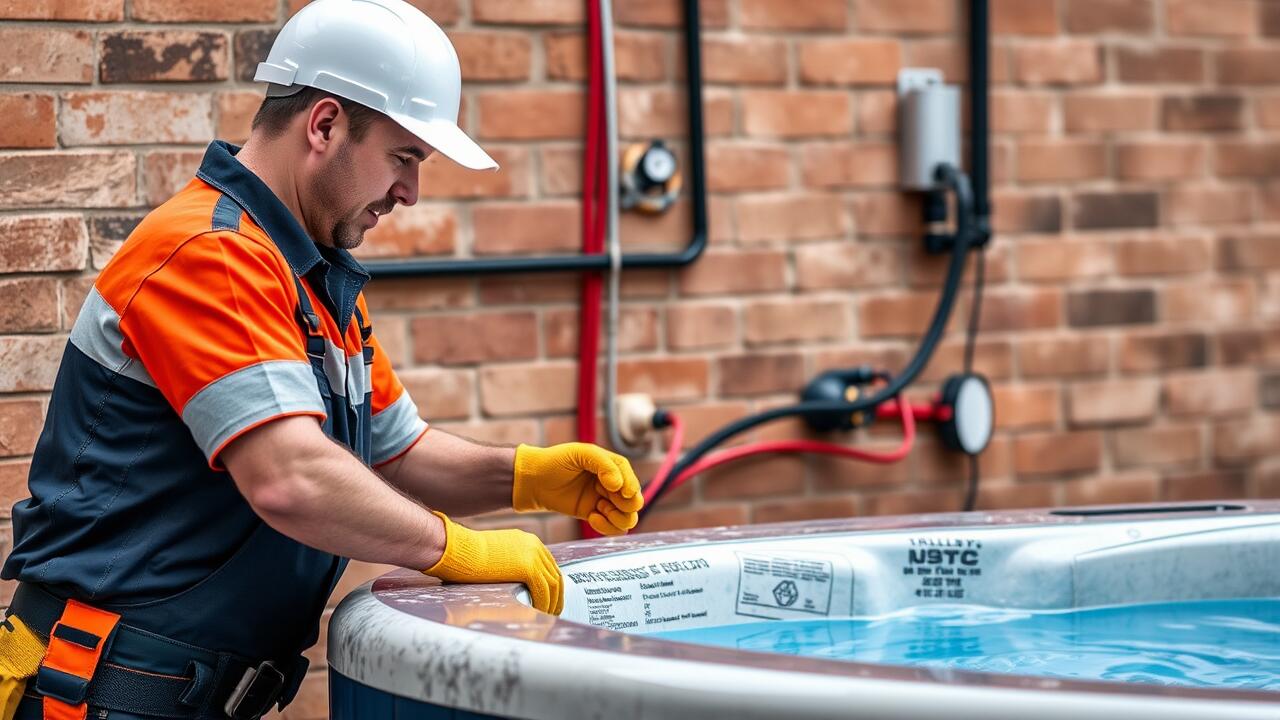
Regular Testing and Maintenance of GFCIs
Regular testing and maintenance of Ground Fault Circuit Interrupters (GFCIs) is essential for ensuring their optimal performance. Pool owners should conduct tests monthly by pressing the "test" button on the GFCI outlets. This action should cause the outlet to trip, and the reset button will need to be pressed before the outlet regains functionality. Consistent checks help identify any potential issues early on and reduce the risk of electrical hazards around the pool area.
In addition to regular testing, proper maintenance of GFCI units is critical for their longevity. Keeping the area around the GFCIs clean and free from debris helps prevent moisture buildup that could lead to failure. It’s also advisable for pool owners to consult professionals for inspections, especially if abnormal behavior is suspected. Searching for “Pool and Hot Tub Wiring near me” can lead to experienced electricians who can provide valuable services, ensuring the GFCIs remain in prime working condition.
Ensuring Your GFCI is Functioning Properly
To ensure that your GFCI is functioning properly, regular testing is essential. Many GFCIs come equipped with a "Test" button, which allows users to quickly determine if the device is operational. Pressing this button simulates a ground fault, causing the GFCI to trip if it’s functioning correctly. If the reset button pops up, the device is working as it should. It's wise to perform this test monthly to maintain safety, especially in areas with water like pools and hot tubs.
In addition to monthly testing, proper installation and periodic inspections play a critical role in GFCI functionality. Any signs of deterioration or damage may indicate the need for replacement. Pool and hot tub wiring near me should be evaluated by a qualified electrician to ensure compliance with local regulations. This not only enhances safety but also upholds the integrity of the electrical system in your swimming areas.
Recognizing Signs of GFCI Malfunction
Identifying the signs of GFCI malfunction is essential for maintaining safety in pool environments. One prominent indicator is when the GFCI outlet frequently trips without any discernible cause. This could suggest that the device is becoming overly sensitive or is experiencing internal issues. Additionally, if the reset button on the GFCI remains unresponsive, that could signal a malfunction, necessitating immediate attention.
Visual signs also play a crucial role in detecting problems. Any discoloration around the GFCI outlet, such as burn marks or melted areas, indicates a potential electrical hazard. Furthermore, buzzing sounds or inconsistent power delivery are serious warning signals. In these cases, seeking professional assistance and searching for "Pool and Hot Tub Wiring near me" can provide solutions to ensure safety and reliability in your pool facility.
Warning Signals to Look Out For
When working with GFCIs, several warning signals can indicate a malfunction. One common sign is the frequent tripping of the GFCI, which may suggest it is detecting ground faults that should not be present. Additionally, if the reset button does not stay in place or if you notice any discoloration or burn marks around the outlet, this may point to a serious issue. Regular inspection and testing are essential to catch these early signs, ensuring a safe environment for pool users.
Another critical aspect to consider is any unusual noises coming from the GFCI outlet. Flickering lights near the GFCI or outlets that feel warm to the touch can also signify an electrical issue. Ignoring these warnings can lead to significant safety hazards. If you suspect any problems, don't hesitate to consult local professionals specializing in Pool and Hot Tub Wiring near me. Their expertise can help identify potential issues and provide solutions before they escalate.
Regulatory Compliance for Pool Owners
Regulatory compliance is critical for pool owners, especially when it comes to ensuring safety through GFCI protection. Local building codes often specify the installation of ground fault circuit interrupters in certain areas, including around pools and hot tubs. Adhering to these regulations is not only a matter of safety but also helps avoid potential fines and liabilities. Homeowners should familiarize themselves with local requirements to ensure their installations meet the necessary standards.
Pool and hot tub wiring near me should be handled by a qualified electrician who understands the regional codes. Regulations can vary significantly from one municipality to another, making it essential to consult with professionals who have experience in local compliance. Regular inspections and upgrades to electrical systems can help maintain safety and keep the pool area compliant with evolving standards. Being proactive in understanding and applying these regulations ultimately fosters a safer swimming environment for all.
Local Codes and GFCI Regulations
Local codes and regulations governing GFCI protection can vary significantly from one jurisdiction to another. These rules are typically established by local building departments to ensure safety for pool installations. It is crucial for pool owners to familiarize themselves with the specific requirements for GFCI protection in their area. Compliance with these regulations not only enhances safety but also helps in avoiding potential legal issues. Many homeowners consult local resources for guidelines regarding electrical installations.
When searching for trusted professionals, using terms like “Pool and Hot Tub Wiring near me” can connect owners with licensed electricians familiar with the latest code requirements. This ensures that their installations meet both safety standards and local regulations. Engaging with local experts can provide valuable insights into the necessary GFCI specifications for different pool types, enhancing both practicality and safety in pool design.
FAQS
What does GFCI stand for?
GFCI stands for Ground Fault Circuit Interrupter, a device designed to protect people from electrical shock by cutting off power when it detects an imbalance in electrical current.
How often should I test my GFCI?
It is recommended to test your GFCI at least once a month to ensure it is functioning properly.
What should I do if my GFCI trips frequently?
If your GFCI trips frequently, it may indicate a problem with the circuit, the GFCI itself, or the appliances plugged into it. You should consult a qualified electrician to diagnose and resolve the issue.
Are there specific regulations for GFCIs related to pools?
Yes, there are local codes and regulations that specify GFCI requirements for pool installations to ensure safety. It's important to check your local regulations to ensure compliance.
What are the signs that my GFCI may be malfunctioning?
Signs of GFCI malfunction include the device not resetting, frequently tripping without a clear cause, or visible damage to the outlet. If you notice these signs, it's best to consult a professional.




